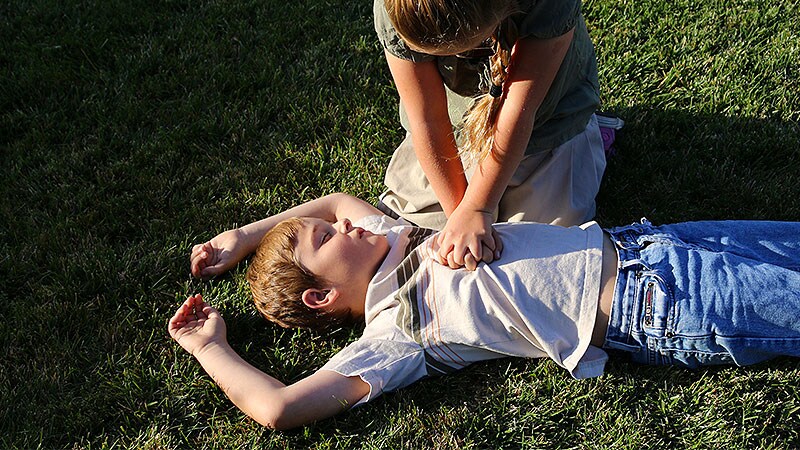Four Life-Saving Questions All Parents Should Ask to Help Prevent Sudden Cardiac Death in Children and Teens
Although it is extremely uncommon, sudden cardiac death in children can be distressing when it does occur. This type of tragedy leaves communities in shock and families in ruins. Possibly the most devastating aspect? If only someone had known what questions to ask, it could have been avoided in many cases.

These tragedies involving young players collapsing on the soccer pitch and never rising again are frequently reported to us. However, it is crucial to realize that even if a child or adolescent has never been on a sports field, they could still experience sudden cardiac arrest.
The American Academy of Pediatrics (AAP) has released a policy statement for 2021 that calls on parents and clinicians to see past the sidelines and acknowledge that heart problems can be silent in any child and can be fatal. Early screening has the potential to save lives.
Why Do Children and Teens Experience Sudden Cardiac Arrest?

In adolescents and teenagers, a number of heart disorders can subtly increase the risk of sudden cardiac arrest. Most of these disorders are rarely noticeable without screening, and many are hereditary or present from birth.
The most frequent offenders are as follows:
HCM, or hypertrophic cardiomyopathy: a disorder in which the heart muscle thickens excessively, making it more difficult for the heart to pump blood effectively.
A rare but dangerous disorder known as an anomalous coronary artery occurs when the arteries that carry blood to the heart are redirected, cutting off the oxygen supply when under stress, such as during physical activity. It is the second most frequent reason.
Disorders of Electrical Conduction: These affect the mechanism that regulates the heart's rhythm.
Congenital Heart Defects: Children who are born with heart defects, even if they receive surgery, are more likely to experience arrhythmias in the future.
Aortopathies: If undiagnosed, diseases like Marfan syndrome that impact the aorta, the body's main artery, can cause fatal ruptures.
Until it is too late, many of these disorders provide little to no warning. This is why it can save lives to ask the correct questions.
Four Screening Questions All Parents Should Understand

You do not have to wait for the physician to bring up these four specific questions, although the American Academy of Pediatrics advises doctors to ask them at normal visits. Knowing the answers to these questions could literally save a life if you are a teacher, coach, parent, or caregiver.
1. Has your child ever passed out, fainted, or experienced an inexplicable seizure, particularly while exercising or following a loud noise (such as a doorbell or alarm clock)?
Although fainting may appear harmless, it may indicate a serious arrhythmia if it occurs quickly or during physical stress.
3. Has there been a sudden death from cardiac issues before the age of 50 in your direct or extended family?
This includes drowning, SIDS, and even mysterious auto accidents. Undiagnosed heart problems can silently run through families.
4. Do any family members suffer from hypertrophic cardiomyopathy, Marfan syndrome, Brugada syndrome, long or short QT syndrome, CPVT, or have a pacemaker or defibrillator inserted before the age of 50?
This inquiry emphasizes how crucial it is to understand your family's medical history. Do not be scared to ask family members what the precise diagnosis was, then let the doctor know.
At what time should this screening take place?
The American Academy of Pediatrics states that these inquiries need to be included in your child's regular physical examinations at least every three years, particularly whether they are starting middle school, high school, or participating in sports.
Your child should be referred to a pediatric cardiologist, preferably one who specializes in electrical cardiac abnormalities, if the response to any of these questions is "yes." It is best for children to stay away from competitive sports and physically demanding activities until they have received a thorough evaluation.
You Do Not Have to Wait for a Physician to Inquire

Staying ahead of something that does not always give warnings is the goal here, not overreacting. Bring up any concerns your child may have at their next appointment, or simply a suspicion that anything is off. Better still, mention it right away.
However, it occurs quickly and leaves a hole that never entirely goes away.
What's Your Reaction?




















